Current research students
Article

Heath Adamson
PhD (Faiths and Civil Society Unit) - Recently Completed
Current Research: The Assemblies of God USA (AG USA) is a Pentecostal, Evangelical denomination in the United States comprised of approximately 13,000 churches. Mixed-methods research is currently in process to assess the Millennial psychography within the movement and ascertain its impact on leadership succession within AG USA. Mapping possible dissonance will provide potential strategies for leadership. The literature review is focused on: 1) An American Sociology of Religion; 2) Millennials and Sociology; 3) History of AG USA and Pentecostalism; 4) Leadership and Change Management.
Bio: Heath Adamson is an author and serves as Chief of Staff at the relief organization, Convoy of Hope. He also leads feedONE, a team of people committed to fighting poverty and hunger for children and families in need. With growing global influence, he serves as the Global Chairman for the World Assemblies of God Fellowship Next-Generation Commission, a community of over 360,000 churches.
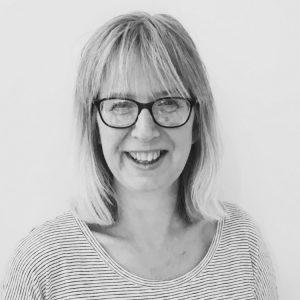
Valerie Barron
PhD Candidate (Faiths and Civil Society Unit)
My research will explore how social enterprise models can be used to enable church social action in North East England. The growth in social action over the last ten years has predominately sat within a ‘charity’ model reliant upon external funding and volunteers, which for many projects is proving problematic. At the same time people equally passionate about seeing communities flourish are using social enterprises as the vehicle for change. Can social enterprises provide an authentic approach for Christian social action? Working as a development worker in Durham Diocese I will be exploring this question with a group locally.

Charlie Baker
PhD Candidate (Faiths and Civil Society Unit)
I have been a youth worker for nearly 6 years, working predominantly in the West Midlands in capacities involving detached youth work, centre based, support living and residential work with EBD young people. As well as this, I have been involved in a variety of youth exchanges and training courses on a European level covering topics such as; youth participation, co-writing and peer reviewing. My research area is within youth work and came about through my practice, aiming to explore young British Muslim women’s inclusion within youth work. The research will use the theories of intersectionality and social capital to consider young British Muslim women’s identities on an individualistic and a wider society level. The aim of the research is through the use of social action research to develop a more informed view of the young women’s inclusion in provisions and how the understanding of identities, role of the woman and religion could further develop youth work policies and in turn practice.
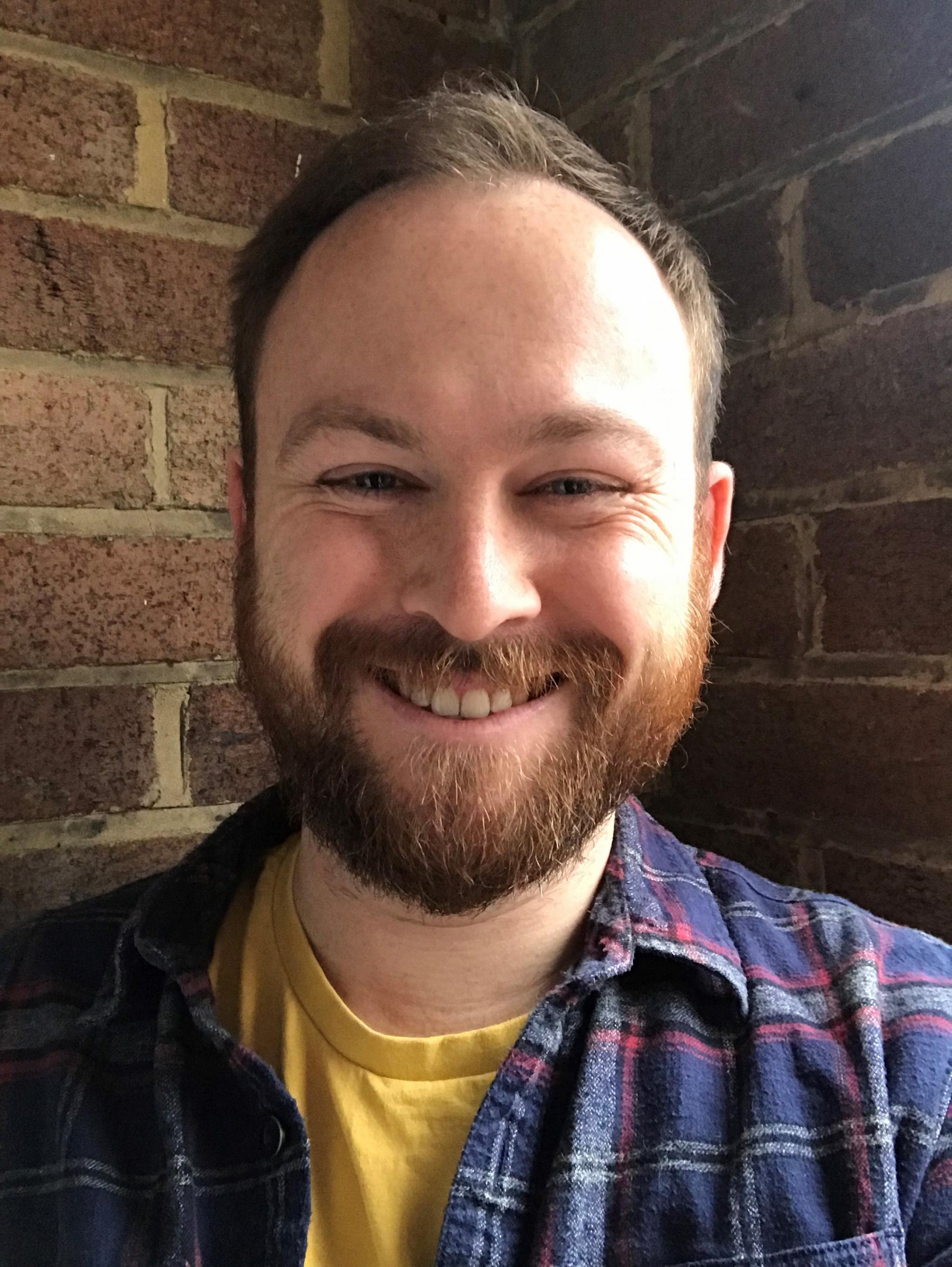
Matthew Barber FRSA
PhD Candidate (Faiths and Civil Society Unit)
Matthew’s research proposes a new model of Faith-Based Organisation (FBO). Matthew’s problematic is that existing models and understandings of FBO and their engagement in contexts of alterity, diversity and marginalisation are too static, too linear and too hierarchical. His contention is that both the impact of long-term austerity, coupled with deep and structural shifts in the belief landscape of the UK, has created a new set of conditions for partnership and mission that old models and understandings fail to capture and critique. The model he is proposing is called ‘Spaces of Hope’. In addition to developing Spaces of Hope as a doctoral candidate here at Goldsmiths, Matthew is also a systems entrepreneur; curating Spaces of Hope in north-west urban contexts, which has built alliances with FBOs including Diocese of Chester and William Temple Foundation, as well as securing a fellowship from the Royal Society of Arts for his work modelling environments and movements of faith-based social change and their role in combatting social isolation across civil society.

Nick Briggs
PhD Candidate (Faiths and Civil Society Unit)
My research area is the concept of the Common Good. As the Common Good derives from both secular and religious traditions, the research will be asking the question as to whether the Common Good can significantly influence conversations with, and partnership building between, different groups who influence and occupy the Public Sphere. The groups being researched are faith groups, business groups and political groups. The research will explore both the theology and theories held by groups that underpin behaviour and how common behaviour between groups can be negotiated and developed so that interventions can take place that improve the public sphere.

John Brown
PhD Candidate (Faiths and Civil Society Unit)
‘Why do people of Faith engage in social action?’ What motivates response to need on the part of those who are members of Faith communities in this country? I am interviewing members of what are regarded as the 9 major Faith communities in the UK trying to find out the extent to which the various components of their Faith membership stimulate them to respond to people in need, how they identify need, whether response is expressed individually or corporately, and whether the objective is to respond to immediate need only or whether there are longer term objectives aimed at addressing the causes of the need.

Gabriel Burcea
PhD Candidate (Faiths and Civil Society Unit)
Previously I have been doing a MA course in Sociology. Therefore, I started to know about University approach in terms of education. I choose to study at Goldsmiths for several reasons. Firstly, the interdisciplinary characteristic the University is encouraging which will have an impact on my research approach. Secondly, the expertise given is valuable.
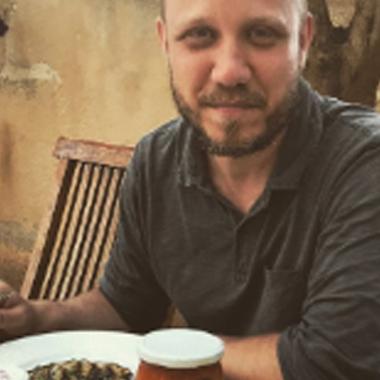
Martin Hasini
PhD Candidate (Anthropology & Faiths and Civil Society Unit)
Martin’s research will explore religious practice among Queer Muslims. Looking at queer ways of being, understanding and practising Islam. This research challenges dominant assumptions around the role that Islam plays in Queer Muslim lives, centring on the queering of Ijtihad (an effort to interpret the religious texts in order to define one’s Islamic practice). The method of queering ijtihad is used by some queer Muslims as a pedagogical tool for engaging with Islam in ways which disrupt dominant hegemonic practices of both heteronormativity and homonormativity. It will ask what queer Muslim practices of Ijtihad are, what role ijtihad plays in the self-fashioning of the queer Muslim, and what kinds of spaces make or are made through the practice of ijtihad. How different bodies, spaces and things are r[e]signified (or not) through ijtihad, and how spaces are transformed and inhabited by queer Muslim practice. This addresses the gap in research on the agency of queer Muslims in the production of queer centred practices of Islam, and ultimately to give space for queer Muslims to speak for themselves.
Martin is a British Albanian Bektashi Muslim and has worked in community development, currently with an LGBT+ Muslim organisation. He has published for the CPS on hate crime, worked with Gypsies/Roma/Travellers in Birmingham and with Intersex UK and OII Europe campaigning for intersex rights. His research interests include Decoloniality, Homonormativity and Heteronormativity, Balkan studies, Habitus/Doxa, Sacred Space, Queer Theory, Religious Studies, Islamic studies, Endangered languages and Sociolinguistics.
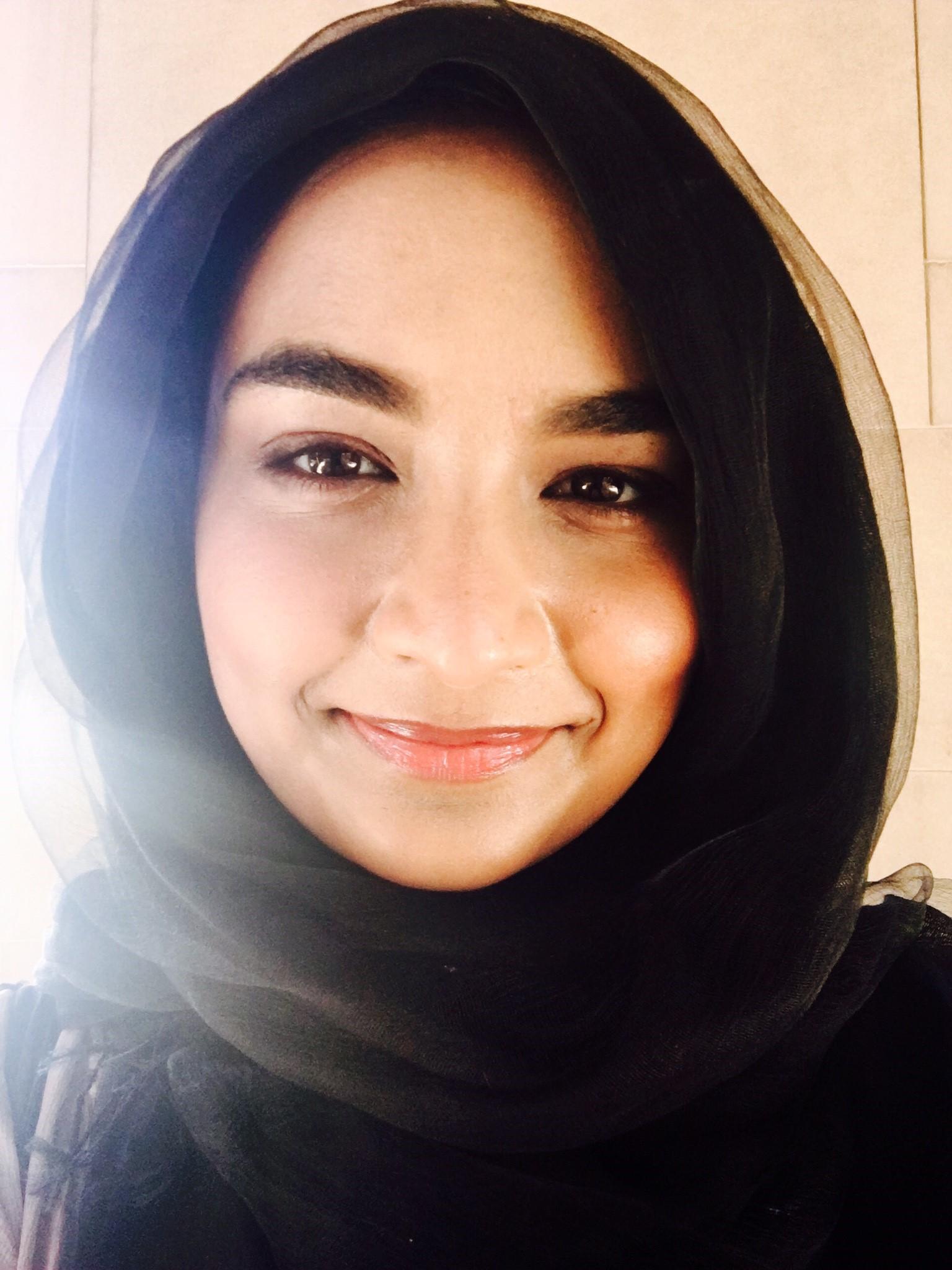
Yasmin Khatun Dewan
PhD Candidate (Faiths and Civil Society Unit)
"Yasmin’s research will explore British Muslim female identities through a post-post 9/11 lens. Looking at understandings of the hijab and the impact of ‘modest fashion’. The research will take into account the phenomena as a means of dialogue with global reach and provide an insight into the tensions and challenges posed by ‘modest fashion’ to understandings of ‘modesty’ through a religious discourse.
Yasmin’s research interests include Conflict/ Post-conflict environments, Human Rights, sexual violence in war, the Central African Republic, identity, religion; Islam and fashion. She is currently news editor for the London bureau of international news channel TRT World and has worked as a journalist for almost ten years. In 2014 she reported and produced investigative documentary ‘Slave Industry: A year on from Rana Plaza‘ – shortlisted for international television investigation 2015 (Association of International broadcasting awards) and travelled to the Chadian borders of the Central African Republic to document the crisis in the recent civil war, meeting refugees escaping violence. She has also produced numerous reports on issues related to British Muslim communities.
In 2009 she graduated with a BA in Sociology and Politics from Goldsmiths University of London. While at Goldsmiths she studied topics including colonialism, political discourse, globalisation, development and rhetoric. Her dissertation focused on socio-scientific explanations of political phenomena within British Muslim communities’ post 7/7.”
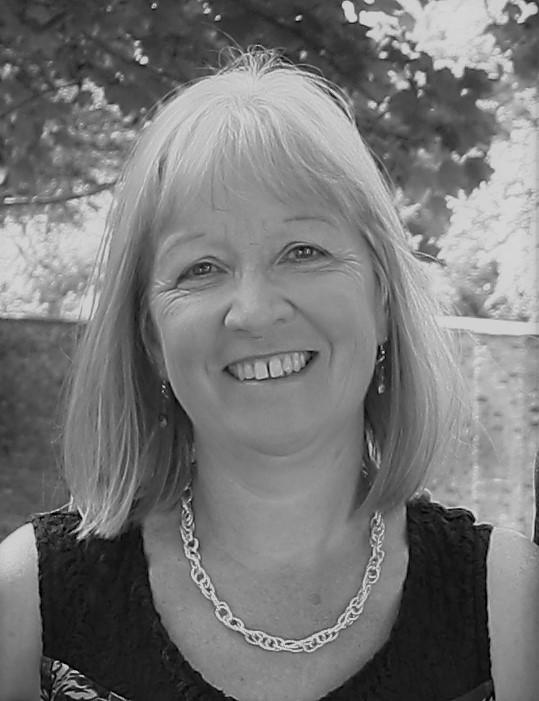
Gill Reeve
PhD Candidate (Faiths and Civil Society Unit)
Gill lives in Chester and is a pioneer minister in Liverpool Diocese, having previously been a Director of a faith-based organisation leading social engagement projects in Chester. In 2010 she pioneered Night Church, an inclusive, sacred space in the night -time economy of Chester, working closely with the local council, the police and other organisations. Gill’s research interest is in the faith-based contribution to networked urban governance and collaborative informal partnerships involved in social welfare provision for local urban communities. In the UK context where there are significant gaps in statutory welfare provision, progressive urban partnerships and coalitions may be increasingly critical in supporting local communities. Drawing on the concept of spiritual capital, the research evaluates local partnerships and relationships with the aim to provide insights capable of informing broader ongoing policy debates and decision making.
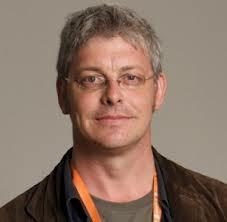
Andy Turner
PhD Candidate (Faiths and Civil Society Unit)
Andy Turner has worked for over three decades in community and youth work, as a practitioner, activist, trainer, researcher and manager in some of the poorest parts of England. In the 1990’s Andy co-founded The Kabin and The Hackney Marsh Partnership, working with East London communities to provide education, training and employment projects, advice services, social enterprise and youth work. A former Director establishing new networks and approaches at Church Urban Fund, Andy now works as an independent consultant and facilitator. He is a lecturer in applied social studies and community and youth work at the Goldsmiths University of London and an associate researcher at the Centre for Community Engagement Research. He is a doctoral candidate at the Faiths and Civil Society Unit at the Goldsmiths University of London. Andy is a trustee and former chair of various arts, civil-society and anti-poverty charities, and lives in Hackney.
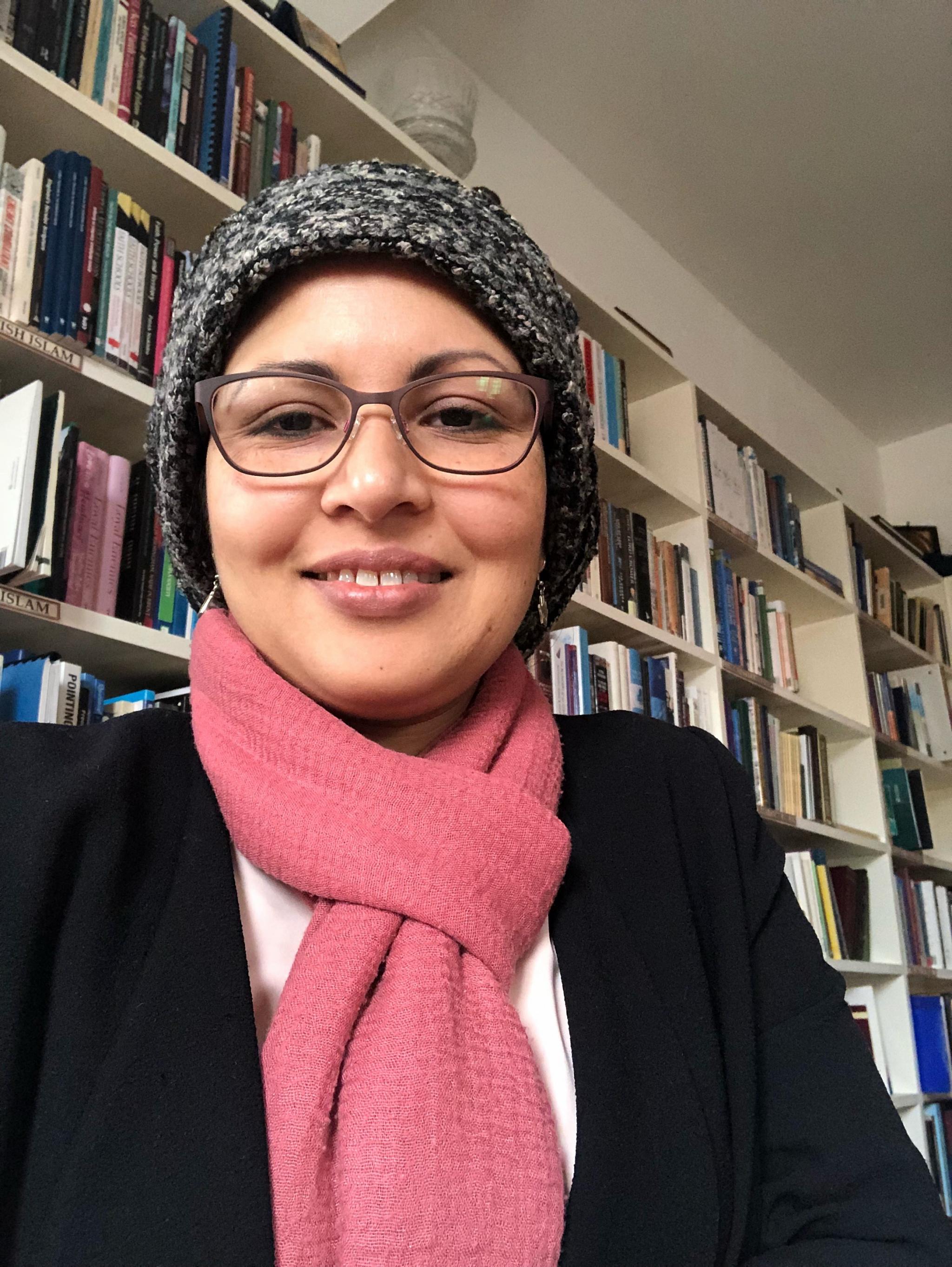
Nasima Khnaom
PhD Candidate (Faiths and Civil Society Unit)
Nasima is a systemic/family psychotherapist trained at (Tavi) Tavistock & Portman NHS Trust (UK) and also a clinical supervisor. Nasima has been working with children, youths and families since the age of 18 with rich eclectic history of working with a wide range of diagnosis.
Nasima specialises in systemic/family therapy which allows her to work with individuals, couples, families or organisations. This means she will consider the whole system of the person, including their family, community, society and global perspectives.
Currently, Nasima is in independent private practice working in Holborn, central London. Nasima has a portfolio of work, one of which was working with a local mosque to provide disaster relief work with a high profile case Grenfell Tower, in London. Also works in NHS: Camhs service. Nasima has a BA (Hons.) from SOAS, MSc. KCL, MA from Tavi. Nasima was a board member of United Kingdom Council of Psychotherapy (UKCP).
Nasima is interested in bringing cultural sensitivity and faith-based spirituality into her work. Nasima is founding chair of Islamic Psychology Professional Association (IPPA) providing safe space for professionals to bring faith into psychology.
Information about Nasima’s work can be found on her website and she can be contacted by email.